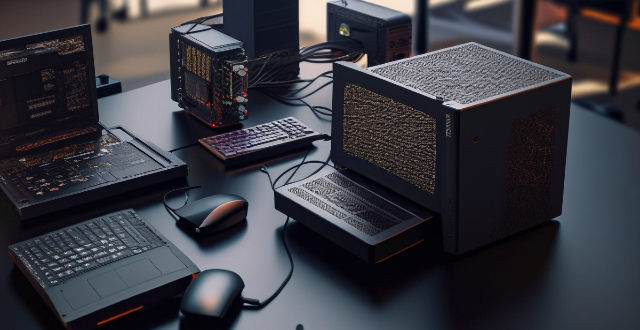A computer has various components that can be upgraded to improve performance, expand capabilities, or extend lifespan. Key components include the CPU, motherboard, RAM, hard drive or SSD, graphics card, power supply unit, cooling system, optical drive, sound card, and network card. Upgrading these components can significantly enhance speed, efficiency, storage capacity, gaming performance, reliability, airflow, audio quality, and online experience. However, compatibility issues should be researched before making any upgrades.

Components That Can Be Upgraded in a Computer
A computer is a complex machine with various components that can be upgraded to improve its performance, expand its capabilities, or extend its lifespan. Here are some of the key components that you can upgrade:
CPU (Central Processing Unit)
The CPU is often referred to as the "brain" of the computer and performs most of the processing inside the computer. Upgrading the CPU can significantly increase the speed and efficiency of your system. However, it's important to ensure that the new CPU is compatible with your motherboard.
Motherboard
The motherboard is the main circuit board of your computer that connects all the different components together. Upgrading the motherboard can provide better compatibility with newer hardware, increased expansion slots, and improved features like faster data transfer rates.
RAM (Random Access Memory)
RAM is used by the operating system and running applications to store data temporarily for quick access. Adding more RAM can help your computer run more programs at once and improve overall performance.
Hard Drive or Solid State Drive (SSD)
The hard drive or SSD is where your operating system, programs, and files are stored. Upgrading to a larger capacity drive gives you more space for storing files, while upgrading to an SSD can greatly increase read/write speeds and reduce boot times.
Graphics Card
The graphics card (also known as a GPU or video card) processes and outputs images to your monitor. Upgrading to a more powerful graphics card can improve gaming performance, video editing capabilities, and other graphics-intensive tasks.
Power Supply Unit (PSU)
The PSU provides power to all the components in your computer. Upgrading the PSU can provide more power for high-performance components, improve reliability, and offer additional connections for future expansion.
Cooling System
The cooling system includes fans, heat sinks, and liquid cooling solutions to regulate temperatures inside the computer. Upgrading the cooling system can improve airflow, reduce noise levels, and prevent overheating issues.
Optical Drive (CD/DVD/Blu-ray)
Optical drives are used to read and write data to CDs, DVDs, or Blu-ray discs. While they have become less essential due to digital distribution methods, upgrading to a faster or multiformat drive can still be beneficial for certain users.
Sound Card
A sound card processes audio signals and sends them to speakers or headphones. Upgrading to a dedicated sound card can provide higher quality audio output and support advanced features like surround sound and audio recording.
Network Card
The network card allows your computer to connect to the internet or local networks. Upgrading to a faster network card or one with additional features like Wi-Fi connectivity or Ethernet ports can enhance your online experience.
In conclusion, there are numerous components within a computer that can be upgraded depending on your specific needs and budget constraints. Before making any upgrades, it's essential to research compatibility issues and consult with professionals if necessary.